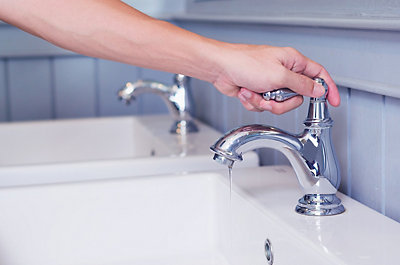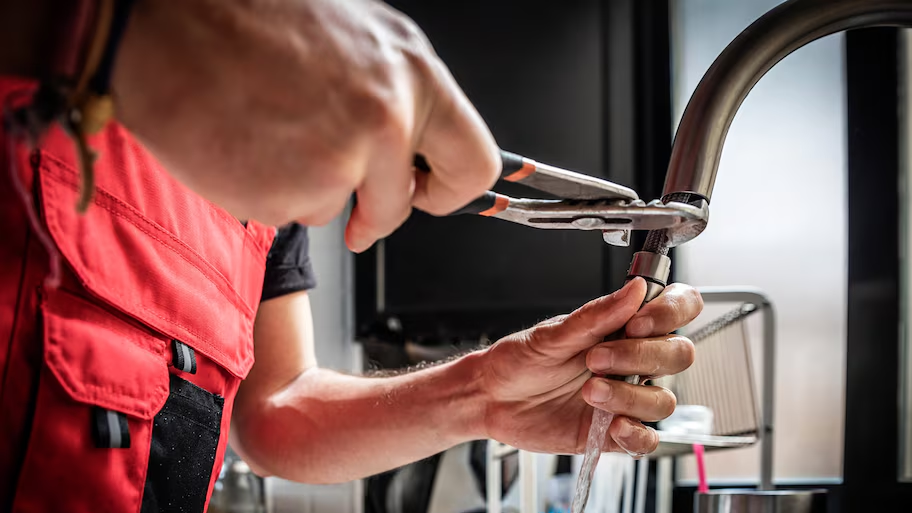Why It's Necessary to Address a Leaking Faucet
Why It's Necessary to Address a Leaking Faucet
Blog Article
We have encountered this great article on Water Dripping from Faucet: Why and How to Fix directly below on the net and think it made sense to quickly share it with you in this article.

Trickling taps may seem like a small aggravation, yet their impact exceeds simply the annoyance of the noise. From drainage to sustaining unneeded economic prices and wellness threats, disregarding a leaking faucet can result in various consequences. In this article, we'll delve into why it's essential to address this usual house problem quickly and efficiently.
Wastage of Water
Environmental Impact
Trickling faucets add significantly to water wastage. According to the Epa (EPA), a solitary faucet leaking at one drip per secondly can lose more than 3,000 gallons of water annually. This not only pressures water sources yet also affects ecological communities and wild animals based on them.
Step-by-Step Overview to Repairing a Dripping Tap
Tools Needed
Prior to trying to repair a trickling faucet, gather the essential tools, including an adjustable wrench, screwdrivers, substitute components (such as washing machines or cartridges), and plumber's tape.
Usual Faucet Issues and Their Solutions
Identify the type of faucet and the particular problem triggering the drip. Typical troubles consist of damaged washing machines, rusty shutoff seats, or damaged O-rings. Describe maker directions or on the internet tutorials for step-by-step assistance on repairs.
Financial Expenses
Enhanced Water Bills
Past the environmental impact, trickling taps can inflate water costs significantly. The built up wastefulness gradually translates right into greater energy costs, which can have been prevented with prompt repair work.
Possible Property Damages
Moreover, extended trickling can result in damage to components and surface areas surrounding the tap. Water buildup can cause staining, rust, and also architectural concerns if left unattended, resulting in extra repair service prices.
Health Issues
Mold and Mildew Growth
The constant presence of moisture from a dripping faucet develops a perfect environment for mold and mildew and mold growth. These fungi not only compromise interior air top quality however likewise position health risks, especially for people with breathing conditions or allergies.
Waterborne Illness
Stationary water in leaking faucets can come to be a breeding place for bacteria and various other pathogens, enhancing the danger of waterborne illness. Contaminants such as Legionella germs flourish in stationary water, potentially causing major ailments when consumed or breathed in.
Do it yourself vs. Professional Repair
Pros and Cons of Do It Yourself Repair Work
While some may try to deal with a dripping faucet themselves, DIY repair services come with their very own collection of challenges. Without correct expertise and tools, DIY attempts can worsen the concern or cause incomplete repair work, extending the trouble.
Advantages of Hiring a Professional Plumber
Working with a specialist plumber makes sure that the underlying root cause of the trickling faucet is attended to efficiently. Plumbing technicians possess the know-how and devices to identify and fix tap concerns effectively, conserving time and decreasing the danger of more damages.
Ecological Duty
Private Payment to Conservation
Taking responsibility for fixing trickling taps straightens with more comprehensive initiatives toward water conservation and environmental sustainability. Every person's actions collectively make a substantial effect on protecting precious resources.
Sustainable Living Practices
By prioritizing timely repair services and embracing water-saving practices, individuals contribute to sustainable living techniques that benefit both existing and future generations.
Safety nets
Routine Maintenance Tips
To avoid dripping faucets, do routine upkeep such as cleaning up aerators, inspecting for leakages, and changing worn-out components quickly. Additionally, think about mounting water-saving tools or updating to much more efficient components.
Relevance of Prompt Repairs
Addressing trickling taps as quickly as they're discovered stops more water wastefulness and possible damage, ultimately saving both water and money in the long run.
Influence On Home Worth
Assumption of Well-Maintained Property
Maintaining a home in good condition, consisting of addressing upkeep issues like trickling faucets, boosts its perceived value and charm amongst potential purchasers or occupants.
Influence on Resale Worth
Residences with well-maintained plumbing fixtures, consisting of taps, command greater resale worths in the real estate market. Attending to trickling faucets can add to a positive impression throughout property examinations and settlements.
Conclusion
Attending to a dripping faucet surpasses mere comfort; it's an important action towards conserving water, minimizing economic costs, and securing wellness and home. Whether with do it yourself repair services or specialist assistance, taking action to repair leaking faucets is a little yet impactful method to advertise responsible stewardship of resources and add to a much healthier, extra lasting future.
Most Common Reasons for a Leaky Faucet and How to Stop the Drip
Whether it’s your kitchen faucet leaking or a bathroom faucet leaking, one leaky faucet can waste anywhere from three to 30 gallons of water every single day. If the constant drip-drip-drip doesn’t get your attention, your water bill will. The good news is that, by following a few simple steps, chances are pretty good you can fix the problem yourself.
Why is it dripping?
Before you start taking things apart, let’s break down some of the most common causes of a leaky faucet.
Bad O-ring.
A cartridge is a valve that controls the flow of water into the faucet spout. On cartridge faucets there’s an O-ring—the little disc attached to the stem screw that holds the faucet handle in place. If it’s loose or worn-out, it can cause your sink handle to leak. Of course, the cartridge itself could be worn out. If that’s the case, make sure you replace it with the exact same kind.
Corroded valve seat.
The valve seat connects the faucet and the spout. If the leak seems to be coming from the spout, it might be because a buildup of water sediment has corroded the valve seat.
Worn-out washers or seals.
A leaky spout could be caused by a bad washer that rests against the valve seat. It’s just a matter of time before friction takes its toll. It could also be the wrong size washer or one that’s been installed incorrectly. Water sediments can also corrode inlet and outlet seals.
Water pressure.
If the faucet only drips now and then, or when you turn the handles a certain way, you should probably check your home’s water pressure.
Loose or broken parts.
The adjusting ring and packing nuts in the stream screw can become loose over time, causing your sink handle to leak. Try tightening or replacing the packing nut. If the leak is coming from the pipes underneath the sink, you probably have a broken pipe or fitting. If that’s the case, you should definitely call a plumber.
Know your faucet.
Faucets come in a variety of types. Each one has its own assembly—and its own possible causes of leaks. Learning about the four most common kinds of faucets will help you know how to take them apart and make any repairs.
How to stop a leaky faucet
Fixing that leaky faucet doesn’t have to take a lot of time, money, or expertise. It’s usually a simple matter of replacing a worn-out washer or gasket, a loose O ring, or another part. Chances are really good you can do this yourself if you follow these simple steps.
Shut off the water.
Before you tackle the faucet, cut off the water supply to the sink. There should be one valve for hot and one for cold. Hand-turn them clockwise with your hands till they close. If there are no valves under the sink, head to the basement and shut off the main water supply to the house. Then turn on the faucet until it empties out the water that’s still in the line and you’re ready to start. It’s a good idea to cover the sink drain with a plug or a rag so you don’t lose any small pieces and parts while you’re working.

Do you appreciate reading about ? Place feedback down below. We'd be glad to know your responses about this blog post. We hope that you visit us again before long. Those who enjoyed our article plz make sure you remember to pass it around. I praise you for being here. Please stop by our website back soon.
Report this page